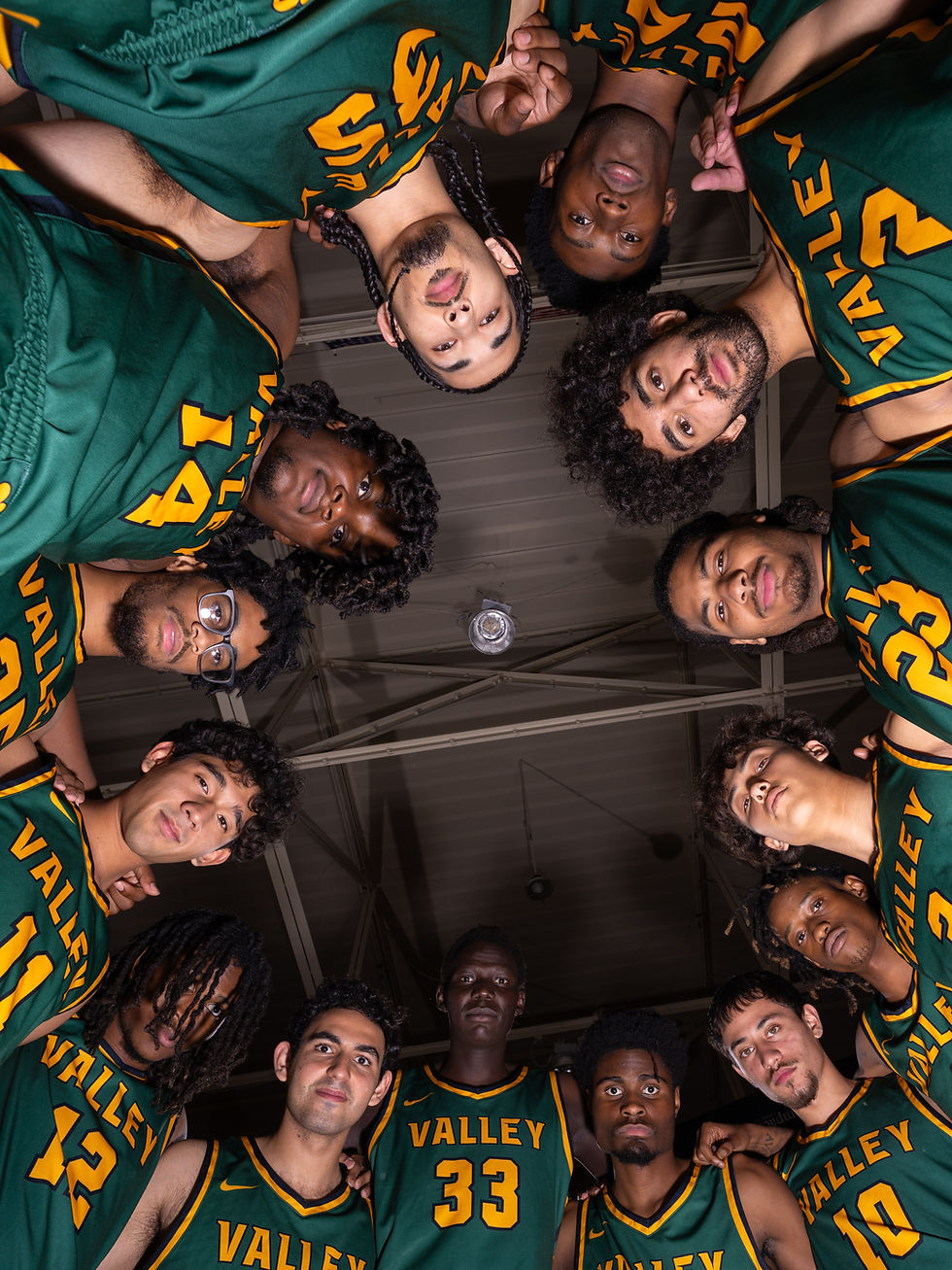NCAA ruling gives some students a second chance
- valleyjourno
- Apr 22, 2020
- 3 min read
The NCAA made several rulings about their cancelled sport seasons centered around COVID-19, which impacted both spring and winter athletics.
By Vicente Vitela, Sports Editor
The NCAA Council has made the decision amongst others to allow spring sport athletes another year of eligibility due to COVID-19, which ended their season entirely. This, however, does not apply to winter sports.
The COVID-19 virus continues to be the biggest pandemic since the 1918 Spanish flu, the sports world has been scrambling to figure out what to do, but the NCAA went ahead and cancelled their winter and spring championships on March 12. At the time, the March Madness basketball and wrestling tournaments were set to take place, and the start of baseball and softball not far behind. About two weeks later after the cancellations, the NCAA released a statement which allows schools to provide spring sport athletes an additional season of competition and an extension of eligibility. Unfortunately, any basketball and wrestling athlete did not earn another year even though they never completed their championship tournaments.
"Like with any good decision, the repercussions are endless. We'll be dealing with these things two, three years down the road,” said Montana AD Kent Haslam, president of the FCS Athletics Directors Association.
The NCAA also adjusted the financial aid rules, allowing teams to carry more students on scholarships to account for the incoming recruits, and for those who will return to fulfill their final year. With the financial uncertainty faced by the schools, the council vote also provided universities with the flexibility to give students the option to return for 2020-21 without holding the universities accountable for paying the full cost for 2020-21 scholarships.
“The council’s decision gives individual schools the flexibility to make decisions at a campus level,” said council Chair M. Grace Calhoun, athletics director at Penn University.
Aid to student athletes is going to be provided at the same level awarded to them for the 2019-20 year. This flexibility applies only to student-athletes, who would have exhausted their final year of eligibility in 2019-20; all others will receive their same aid as planned. Schools will also have the ability to use the NCAA’s Student Assistance Fund to pay for scholarships for students who will take advantage of the additional eligibility flexibility in 2020-21.
“The board of governors encouraged conferences and schools to take action in the best interest of student-athletes and their communities, and now schools have the opportunity to do that,” said Calhoun.
Some other key notes from the NCAA’s decision was that winter sports were not included in the decision. This decision was made where sports like men’s/women’s basketball, gymnastics and wrestling as well as a few others had completed all or much of their regular season. The biggest concern for many of the winter athletes was not the regular season, but the inability to complete their NCAA championships, something many athletes use as a benchmark or proving ground as an athlete. Basketball programs are allowed no more than 13 full scholarships, and giving seniors the opportunity to come back could take away a scholarship from a recruit that's already committed.
”As a senior with a career-long goal of competing in an NCAA Championship, I was of course heartbroken at the NCAA’s decision,” said senior skier Riley Whitney of St. Lawrence University.
The Council also decided to increase the roster limit in baseball for student-athletes impacted by the COVID-19 pandemic, which allows incoming high school seniors to not occupy roster spots for those who wish to return, the only spring sport with such a limit.
This could potentially have a huge impact on sports like softball and lacrosse, as now more students will have to redshirt more than ever. This could have repercussions down the line as due to the number of red shirts expected to go up the need for high level recruits goes out the window as coaches will no longer need to look for a star catcher as they already have two ready to compete.





AV在线看 AV在线看;
自拍流出 自拍流出;
国产视频 国产视频;
日本无码 日本无码;
动漫肉番 动漫肉番;
吃瓜专区 吃瓜专区;
SM调教 SM调教;
ASMR ASMR;
国产探花 国产探花;
强奸乱伦 强奸乱伦;
AV在线看 AV在线看;
自拍流出 自拍流出;
国产视频 国产视频;
日本无码 日本无码;
动漫肉番 动漫肉番;
吃瓜专区 吃瓜专区;
SM调教 SM调教;
ASMR ASMR;
国产探花 国产探花;
强奸乱伦 强奸乱伦;
代发外链 提权重点击找我;
蜘蛛池 蜘蛛池;
谷歌马甲包/ 谷歌马甲包;
谷歌霸屏 谷歌霸屏;
谷歌霸屏 谷歌霸屏
蜘蛛池 蜘蛛池
谷歌快排 谷歌快排
Google外链 Google外链
谷歌留痕 谷歌留痕
Gái Gọi…
Gái Gọi…
Dịch Vụ…
谷歌霸屏 谷歌霸屏
负面删除 负面删除
币圈推广 币圈推广
Google权重提升 Google权重提升
Google外链 Google外链
google留痕 google留痕
代发外链 提权重点击找我;
谷歌蜘蛛池 谷歌蜘蛛池;
Fortune Tiger Fortune Tiger;
Fortune Tiger Slots Fortune…
谷歌权重提升/ 谷歌权重提升;
谷歌seo 谷歌seo;
מכונות ETPU מכונות ETPU;
Машини ETPU Машини ETPU
ETPU-Maschinen ETPU-Maschinen
EPS-машины EPS-машины
ЭПП-машины ЭПП-машины� بي يو
ETPU maşınları ETPU maşınları
ETPUマシン ETPUマシン
ETPU 기계 ETPU 기계
代发外链 提权重点击找我;
谷歌蜘蛛池 谷歌蜘蛛池;
Fortune Tiger Fortune Tiger;
Fortune Tiger Slots Fortune…
谷歌权重提升/ 谷歌权重提升;
谷歌seo 谷歌seo;
מכונות ETPU מכונות ETPU;
Машини ETPU Машини ETPU
ETPU-Maschinen ETPU-Maschinen
EPS-машины EPS-машины
ЭПП-машины ЭПП-машины� بي يو
ETPU maşınları ETPU maşınları
ETPUマシン ETPUマシン
ETPU 기계 ETPU 기계